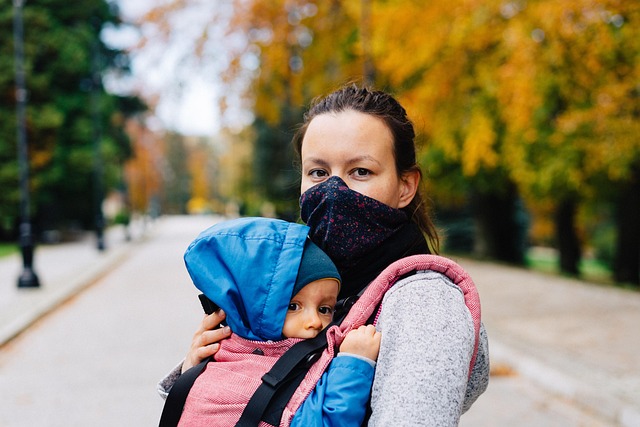DHS (Department of Homeland Security) child welfare cases prioritize protecting vulnerable children from harm at home. These cases arise from reports of abuse, neglect, or unsafe conditions, leading to investigations by the DHS Office for Children's Services. The process involves reporting, home visits, interviews, and record reviews, resulting in potential removal and placement in protective care while working towards family reunification. Family lawyers play a vital role as advocates, ensuring parental rights and fair treatment within a complex legal system. A strategic approach includes evidence gathering, building a support network, and negotiating alternative resolutions to minimize disruption. Legal representation guides families through hearings and challenges unfair practices, empowering them to protect their children's best interests. Post-case recovery involves community support services, mental health care, financial assistance, and rebuilding lives with open communication.
“In the complex landscape of DHS child welfare cases, the role of family lawyers is more critical than ever. These legal proceedings, often shrouded in mystery, demand a keen understanding of the process and strategic defense mechanisms. This article illuminates the intricate journey, from deciphering DHS interventions to crafting robust defense strategies and ensuring fair treatment. We explore the vital contributions of family lawyers in protecting parental rights, post-case support resources, and the ultimate goal of familial recovery.”
- Understanding DHS Child Welfare Cases: A Glimpse into the Process
- The Role of Family Lawyers in Protecting Parental Rights
- Building a Strong Defense Strategy for Family Interventions
- Navigating Legal Procedures to Ensure Fair Treatment
- Supporting Families Post-Case: Resources and Recovery
Understanding DHS Child Welfare Cases: A Glimpse into the Process

DHS (Department of Homeland Security) child welfare cases are a complex and sensitive process that involves the protection and well-being of vulnerable children. These cases typically arise when a child is reported to be at risk or in harm’s way within their home environment, often due to allegations of abuse, neglect, or unsafe living conditions. The DHS Office for Children’s Services plays a crucial role in investigating these reports and taking appropriate actions to ensure the child’s safety.
The process begins with an initial report, which can come from various sources like school personnel, medical professionals, or concerned neighbors. Upon receiving a report, DHS conducts a thorough assessment, including home visits, interviews with family members and caregivers, and reviews of relevant records. If the investigation confirms the allegations, the agency may remove the child from their home and place them in a safe, alternative living situation while efforts are made to reunify them with their family when possible. The entire process is designed to be collaborative, involving various stakeholders, including social workers, legal professionals, and community resources, to provide comprehensive support for both the child and their family.
The Role of Family Lawyers in Protecting Parental Rights

In DHS child welfare cases, family lawyers play a pivotal role in defending parental rights and ensuring fair treatment for families facing potential separation. These legal professionals are equipped to navigate complex child welfare systems and advocate for the best interests of both parents and children. They provide critical support by offering specialized knowledge of state laws and regulations related to parental rights, custody, and placement.
Family lawyers employ various strategies to protect families, including challenging unfair practices, advocating for transparency in DHS procedures, and ensuring that parental involvement in decision-making processes is respected. Their expertise enables them to present compelling arguments, offer alternative solutions, and help maintain the familial bond during trying times.
Building a Strong Defense Strategy for Family Interventions

Defending families in DHS (Department of Homeland Security) child welfare cases requires a robust and tailored defense strategy. The first step is to thoroughly understand the specific allegations against the family, gathering all relevant evidence that challenges or contextualizes these claims. This involves meticulous documentation of the family’s situation, including their history with DHS, any prior interactions with social services, and current circumstances that may offer extenuating factors.
A strong defense strategy should also focus on building a supportive network around the family. Engaging community resources, such as social workers who specialize in family preservation or cultural advocacy groups, can provide valuable insights and assistance. Additionally, legal representation should be proactive in negotiating with DHS, advocating for alternative resolutions like family preservation services or relative placements, which can help minimize the impact of removal on the children’s well-being.
Navigating Legal Procedures to Ensure Fair Treatment

Navigating legal procedures in DHS child welfare cases is a complex task that demands meticulous attention to detail. Families involved face a labyrinthine process, which can be daunting and overwhelming. Understanding their rights and the various stages of the case is paramount. Legal representatives play a pivotal role in guiding families through this intricate landscape, ensuring they are treated fairly and have access to adequate representation.
By staying informed about the legal intricacies, advocates can help families prepare for hearings, file necessary documents, and challenge any unfair practices. This proactive approach empowers them to actively participate in the process, safeguard their rights, and ultimately protect the best interests of their children within DHS child welfare cases.
Supporting Families Post-Case: Resources and Recovery

After a DHS child welfare case, supporting families in their recovery and resource acquisition is paramount. Many families face challenges reintegrating into their communities and rebuilding their lives following an intense and stressful period. Local community organizations, non-profits, and government agencies play crucial roles in providing essential resources to help these families heal and thrive. These can include mental health services for both parents and children, financial assistance programs to aid in stable housing and food security, and educational opportunities to enhance skills and job prospects.
Additionally, fostering a supportive network of family, friends, and peers can significantly contribute to the post-case recovery process. Encouraging open communication, promoting understanding, and offering non-judgmental support helps families navigate the aftermath of DHS involvement. This collective effort not only supports individual families but also strengthens the overall community by reducing stigma and fostering a more welcoming environment for all families in DHS child welfare cases.






